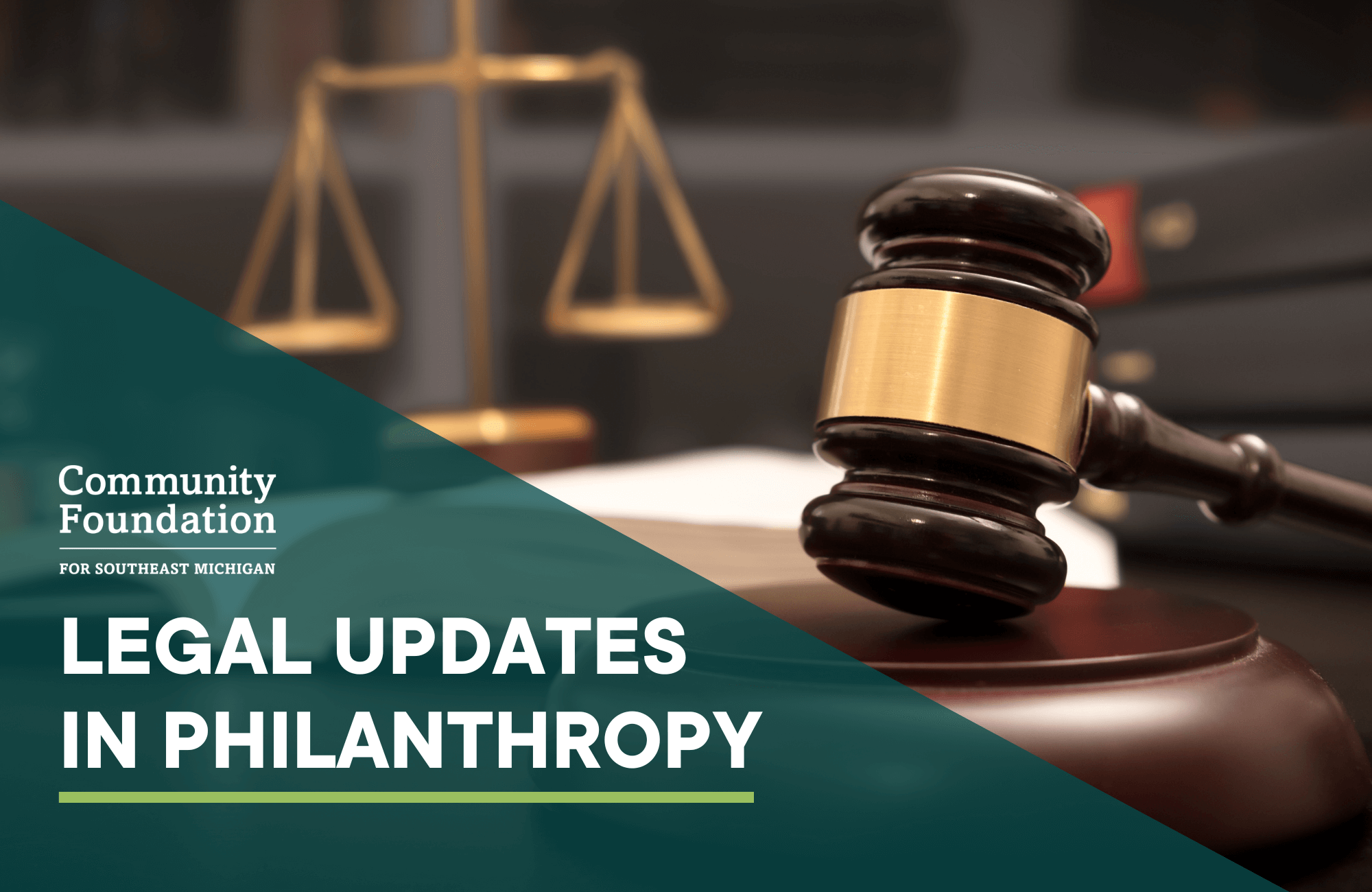Impact of US Supreme Court’s Harvard/UNC Opinion on Nonprofit Sector: Challenges to Race-Conscious Programs
Jun 30th 2024


Laura L. Brownfield
General Counsel
Two recent federal court decisions shed new light on the ongoing wave of DEI-related challenges following the Supreme Court’s 2023 Students for Fair Admissions, Inc.
American Alliance for Equal Rights v. Fearless Fund Mgmt., LLC No. 23-13138, 2024 WL 2812981, at *1 (11th Cir. June 3, 2024) – June 2024
- The 11th Circuit blocked a venture capital firm’s nonprofit affiliate from issuing grants through a startup funding competition to black women-owned businesses. The 11th Circuit found that the contest constitutes a contract supported by sufficient consideration and violates a federal civil rights law 42 U.S.C. § 1981, that prohibits private parties from discriminating on the basis of race when making or enforcing contracts.
- Fearless Fund argued that even if the contest was a contract, it is legal because it fell within the “remedial program” exception established by the U.S. Supreme Court in a line of Title VII employment cases that mandate race-conscious remedial programs address clear racial imbalances and avoid creating an absolute bar to the advancement of other employees. The 11th Circuit rejected the argument because the exception only applies in Title VII employment cases and even if it did apply the program created an “absolute bar to the advancement of non-black business owners since it was only open to black women.”
- The 11th Circuit also rejected Fearless Fund’s argument that the First Amendment guarantees the right to engage in association for the advancement of beliefs and ideas. The Court reasoned “the First Amendment does not protect the very act of discriminating on the basis of race.”
- Fearless Fund settled with the Plaintiff, announced the elimination of its grant and also unveiled a new, $200 million debt fund for entrepreneurs. This time, the fund is open to “under-resourced founders,” a term that may prevent it from getting sued.
Roberts v. Progressive Preferred Insurance Co. (“Hello Alice”), No. 1:23 CV 1597, 2024 WL 2295482, at *1 (N.D. Ohio May 21, 2024).
- Progressive Preferred Insurance Company partnered with Circular Board LLC, which operates Hello Alice, an online resource platform, to administer a grant program that offered $25,000 grants to “ten black-owned small businesses to use toward purchasing a commercial vehicle.” The program required applicants to be majority black-owned businesses. Roberts, a white business owner, challenged this eligibility requirement under 14 U.S.C. § 1981, and the court dismissed his lawsuit for lack of standing.
- The court noted that analyses on standing differ depending on the relief requested. For retrospective relief, the court held that plaintiffs must allege that “under a race-neutral policy, they would have received the benefit.” The court then found that Roberts claimed damages for his “injury” but failed to sufficiently allege that he would have received a grant had he been eligible to apply. For prospective (injunctive) relief, the court held that a plaintiff must plead that it was “‘able and ready’ to apply to the program, but that a discriminatory policy prevent[ed] it from doing so on an equal basis.” The court then found that Roberts sued after the application window for the grant program closed, and that upcoming Hello Alice grant programs were race-neutral. Therefore, Roberts was not “able and ready” to apply to a past grant program, and he had no basis to suggest that his race would prevent him from applying in the future. Defendant’s motion to dismiss was granted and the case is on appeal in the 6th Circuit.
Note: This material was developed by Community Foundation for Southeast Michigan. It is published with the understanding that neither the publisher nor the author is engaged in rendering legal, accounting, or other professional service. If legal advice or other expert assistance is required, the services of a professional advisor should be sought.
